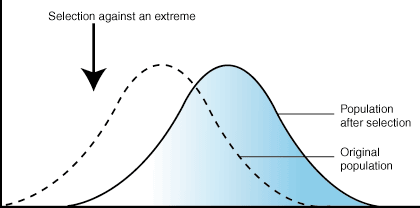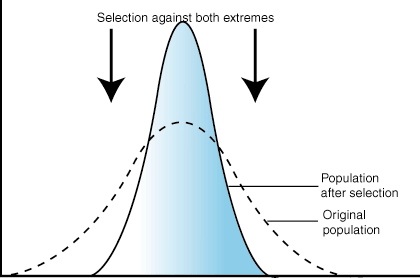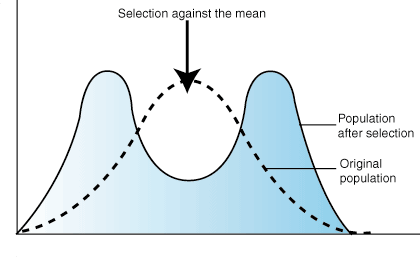Natural selection leaves a certain gene pool’s allele
make-up quite different depending on selection pressures. The results are quite
easy to understand. Take a population of toads. Directional selection would
happen if smaller toads avoided predators better, hence larger toads would be
gobbled up more frequently. The average toad size in the following generations
would shift in the DIRECTION of the smaller extreme.
Stabilising selection, on the other hand, shifts extremes
towards the middle values. Say small toads have less reproductive success, and
large toads are more appealing to predators. Average-sized toads will be best
adapted to that situation (of course, unless they too happen to have some
“issue”, in which case, bad news for the toad empire).
Finally, perhaps the most bizarre of these is disruptive
selection. It occurs as a result of extreme phenotypes (noticeable traits) being
better adapted to the environment than mid-range values. Say smaller toads
survive better due to weather conditions during a certain period of time, while
larger toads survive better during other times, but average-sized toads have no
advantage at any given time.
This stuff becomes so much more interesting when applied to
humans. Where you live, which type of selection do you think is taking place?
…if any.



Comments
Post a Comment
Comment...